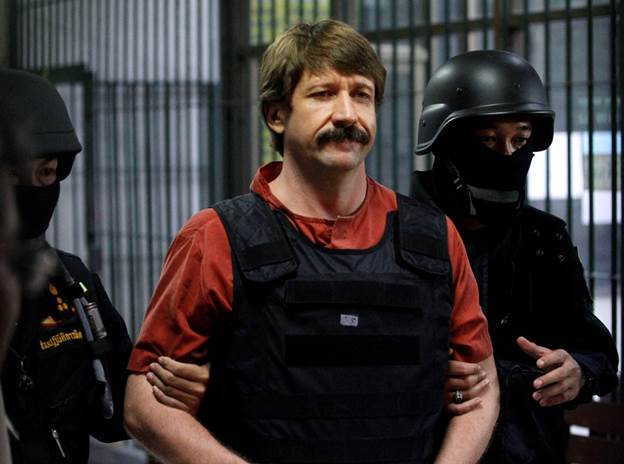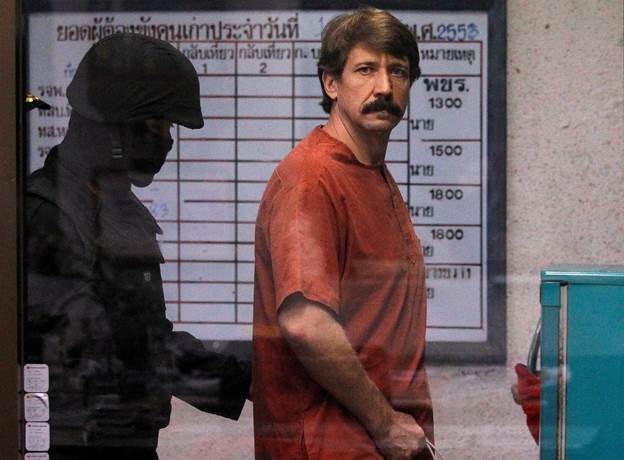Viktor Bout, often called the “Merchant of Death,” is one of the most infamous arms dealers in modern history. His global weapons network earned him vast wealth and a notorious reputation as someone capable of supplying arms to conflicts around the world. With ties stretching from Africa to the Middle East and beyond, Bout became a central figure in the international black-market arms trade during the 1990s and early 2000s.
As of current estimates, Viktor Bout’s net worth is around $50 million, though much of his fortune is hidden in complex offshore holdings and untraceable assets due to the nature of his operations.

Early Life and Background
Viktor Anatolyevich Bout was born on January 13, 1967, in Dushanbe, Tajikistan, then part of the Soviet Union. He grew up in an environment shaped by Soviet military culture and politics.
Bout studied at the Military Institute of Foreign Languages in Moscow, where he became fluent in several languages — a skill that later helped him negotiate arms deals across continents. Following the collapse of the Soviet Union, he leveraged his military contacts and knowledge to build a global smuggling empire.
Rise as an International Arms Dealer
Bout seized this opportunity, purchasing surplus arms at cheap prices and then selling them at massive profits to groups and governments around the world.
Key elements of his rise:
- He built a fleet of cargo planes, giving him the ability to transport weapons globally under the guise of legitimate cargo operations.
- Bout was able to supply arms to African warlords, Middle Eastern militias, and even governments, fueling conflicts that devastated regions.
- His network was so vast that he earned the nickname “Merchant of Death”, a title popularized by Western intelligence agencies and the media.
At his peak, Bout’s operation was considered one of the most sophisticated arms trafficking networks in the world.

Sources of Wealth
Viktor Bout’s $50 million net worth stems from decades of arms trading, with revenues flowing in from multiple conflict zones. His wealth came from:
- Weapons Sales: Supplying rifles, ammunition, and even military-grade equipment.
- Cargo Airline Business: Using front companies such as Air Cess and Air Bas, which operated legitimately but also carried illegal cargo.
- Global Connections: Deals with clients ranging from African rebel groups to governments under sanctions.
Bout’s ability to blur the line between legal and illegal business helped him accumulate immense hidden wealth.

Arrest and Conviction
Despite his low-profile lifestyle, Viktor Bout became a target of U.S. and international law enforcement. After years of investigation, he was arrested in 2008 in Thailand during a sting operation organized by the U.S. Drug Enforcement Administration (DEA).
- Conspiracy to kill U.S. citizens
- Illegal arms dealing
Bout was sentenced to 25 years in prison.
Prison Life and Exchange
While serving his sentence in the U.S., Bout continued to deny the accusations against him, claiming he was merely a businessman.
This deal reignited global interest in Bout’s story and his controversial legacy.
Viktor Bout’s Net Worth Today
Despite years in prison, Viktor Bout is still believed to have a net worth of around $50 million. Several factors contribute to this figure:
- Much of his fortune was hidden in offshore accounts and properties.
- His business network included shell companies that may still hold assets under associates’ names.
- His notoriety has also given him influence in Russia, where he has been treated as a figure of national interest.

Legacy and Cultural Impact
Viktor Bout’s life has left an enduring mark on global culture and politics:
- He inspired the 2005 film Lord of War, starring Nicolas Cage, which was loosely based on his life.
- His nickname “Merchant of Death” has become synonymous with international arms trafficking.
- Bout remains a symbol of how the collapse of the Soviet Union fueled a global black market for weapons.
Final Thoughts
With an estimated net worth of $50 million, Viktor Bout represents both the immense profits and dark consequences of the international arms trade. His story is one of opportunity, cunning, and controversy — a man who capitalized on global instability to build a fortune, only to fall into the hands of U.S. law enforcement.
Now free after the 2022 prisoner exchange, his future remains uncertain, but his reputation as the Merchant of Death ensures his name will remain infamous for decades to come.

